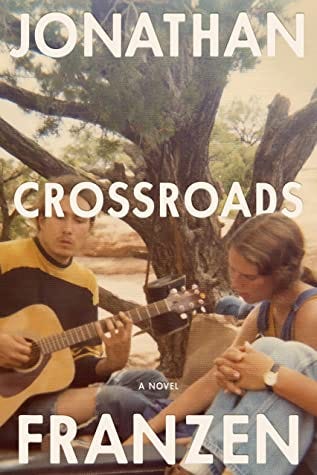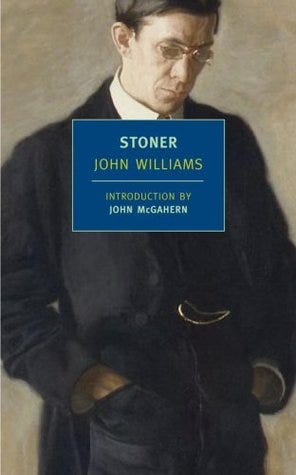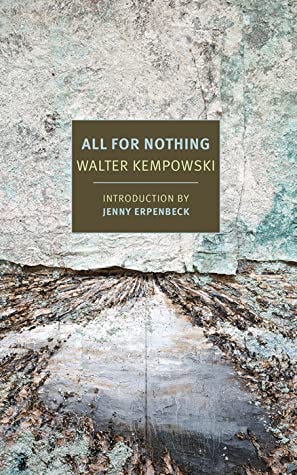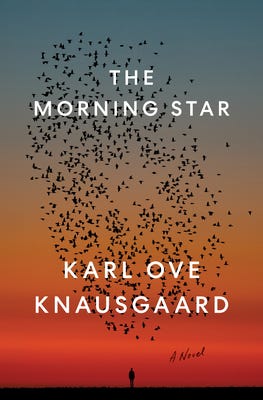Quick reviews of the best fiction I read (for the first time) this year.
I re-read a handful of all-time favorites (Lolita, Madame Bovary, The Collected Stories of Lydia Davis, and Ada, or Ardor) in 2021, which felt like a comforting choice during a never-ending pandemic, but I have not included them in this list, as they are all #1 picks.
Without further ado!
1. No One Is Talking About This, Patricia Lockwood
“Why were we all writing like this now? Because a new kind of connection had to be made, and blink, synapse, little space-between was the only way to make it. Or because, and this was more frightening, it was the way the portal wrote.”
Patricia Lockwood descends into “the portal,” the life we all live online, and emerges with flashes of brilliant insight, humor, and pathos. The novel is structured in a very piecemeal, Lydia Davis-y style, which also seems appropriate for the subject matter, and it takes a surprisingly emotional turn in the second half, which I felt unprepared for. (I actually cried toward the end of the book, which I rarely do with any novels, and which I surely did not expect this book to make me do, given the jovial, self-deprecating tenor and content of its first half.) I wanted to read more from her after becoming obsessed with her essay in the London Review of Books about Elena Ferrante, and this curiously moving little book did not disappoint my high expectations.
(Buy)
2. Crossroads, Jonathan Franzen
It’s uncool to like Jonathan Franzen, but gosh, guys, he is really great. This novel is a perfect example of his skill at interpersonal insights and all the drama that goes on in the minds of family members. Here, toward the waning years of the Vietnam War, an American pastor’s family is coming apart at the seams. Franzen, while not claiming Christianity for himself, writes with sensitivity and clarity about the Jesus Movement and how people of faith might have navigated it during this tumultuous decade. Riveting and heart-wrenching at times.
(Buy)
3. Stoner, John Williams
The clean plainness of John Williams’s prose befits his protagonist: William Stoner, a featureless farm boy who slides into a role as an English professor at the University of Missouri. We follow his quiet, largely uneventful life as a teacher in the early half of the 20th century, and Williams presents to us a character we come to admire and yet expect nothing from. It is a fascinatingly quiet novel and yet it accomplishes a great deal. As a whole, it brings to mind the beautiful closing paragraph of Middlemarch, thinking of people, like Stoner, “who lived faithfully a hidden life, and rest in unvisited tombs.”
(Buy)
4. The Abyss, Marguerite Yourcenar
Having recently finished Diarmaid MacCulloch’s enormous history The Reformation, I felt well-prepared for this thorough novel about the risks of being an intellectual dissident during the Reformation. The great Marguerite Yourcenar never disappoints. Her far-ranging imagination and depth of historical insight is astonishing, and her prose (here translated by Grace Frick, her lifelong partner, who also translated the peerless Memoirs of Hadrian) is gorgeous without being stuffy. The Abyss is a novel about Zeno, a physician and alchemist making his way through the heady, deadly period of the Reformation in and around Flanders. For his atheism and for his scientific practice, he is perpetually under suspicion of heresy wherever he lives, and he meets and saves many different people (mostly men) throughout the course of the book. His philosophical dialogues with the Prior are particularly enjoyable; Yourcenar renders the contrast between the former’s great doubt and the latter’s great faith with sensitivity and warmth. (For what it’s worth, Zeno is also a very archetypal, classic portrait of an iconoclastic 5, for those who ascribe to the enneagram.) It’s a dense, impressive work of historical fiction; a welcome escape during pandemic winter.
(Buy)
5. All for Nothing, Walter Kempowski
An episodic, humane, unusual novel, set in East Prussia in 1945, as the Red Army is advancing and forcing the migration of thousands of refugees. In a ramshackle estate, a woman lives with her 12-year-old son and a number of attendants, and they all play host to an array of wandering strangers, including a drifting painter, a Nazi violinist, and a Jewish refugee, before they themselves have to take to the road, and the horrors of war become increasingly personal. Walter Kempowski published this, his last novel, in 2006, and in it, reveals a sensitive and yet unflinching portrayal of Germans at home, the ones trying to determine whether they had enough ration coupons, if their husbands and sons were still alive at the front, what their neighbors were doing, and what the point of living was, after all. Kempowski writes plainly, with skill, and does not embellish or romanticize. His characters all have rather flat affect, which creates an unusual effect when they are faced with such horrors. Remarkable novel; a memorable achievement in historical fiction.
(Buy)
6. The Morning Star, Karl Ove Knausgaard
Oh, Karl Ove! Look at you, writing about people who aren’t yourself (although I suspect there are a few strong resemblances here)! Through a chorus of characters, this unexpectedly creepy novel meditates on death and how we might all reckon with a quiet, spooky apocalypse. I did not expect to be so riveted. I wanted it to end with a bang, not a whimper, however, and the conclusion left me feeling a bit disappointed.
(Buy)
7. Second Place, Rachel Cusk
Gloomy introspective novel by Rachel Cusk; unmistakably by Rachel Cusk. Who else could write such a deeply sad, deeply conscious, deeply strange novel? I’m still not entirely convinced that I really love her, but I keep coming slowly back to her writing, often failing to resist her witchy magnetism. Some segments of this felt very Woolfian to me, which is perhaps why I kept going even when the first 40 pages failed to capture much of my interest. I picked up enthusiasm as the novel wore on (once L and Brett arrived).
(Buy)
8. Heat Wave, Penelope Lively
Penelope Lively is so good at what she does, and I get the sense that she is sadly under-read. In Heat Wave, a middle-aged copy editor named Pauline takes up a summer residence in a ramshackle cottage with her daughter, Teresa, and her daughter’s family: husband, Maurice, a writer, and infant son, Luke. In Lively’s skillful hands, a story in which little happens becomes rich with internal drama, past reflections on former lives (and lives that could have been), and a fair dose of heartache. Thrillingly quick and a pleasure from start to finish.
(Buy)
9. Passing On, Penelope Lively
As may be evident by now, I’m always in the mood for a Penelope Lively novel. She’s so delightfully English and introspective. Her particular affection for middle-aged people is compelling, too.
(Buy)
10. Last Night: Stories, James Salter
It’s such an unpopular, unfashionable opinion, but wow, I love these old white male novelists, with their casual, upper-class sexism and narrow field of vision. They’re so charming, and Salter is a real stylist. This collection bears some resemblance to Cheever stories, but the stories lack Cheever’s characteristic depth. The last story (the titular story) is the best one, I think.
(Buy)
Honorable mentions
Breasts and Eggs, Mieko Kawakami
Hamnet, Maggie O’Farrell













Oo I love Penelope Lively! Moon Tiger was one of my grandmother’s favourites - and it is a delight.